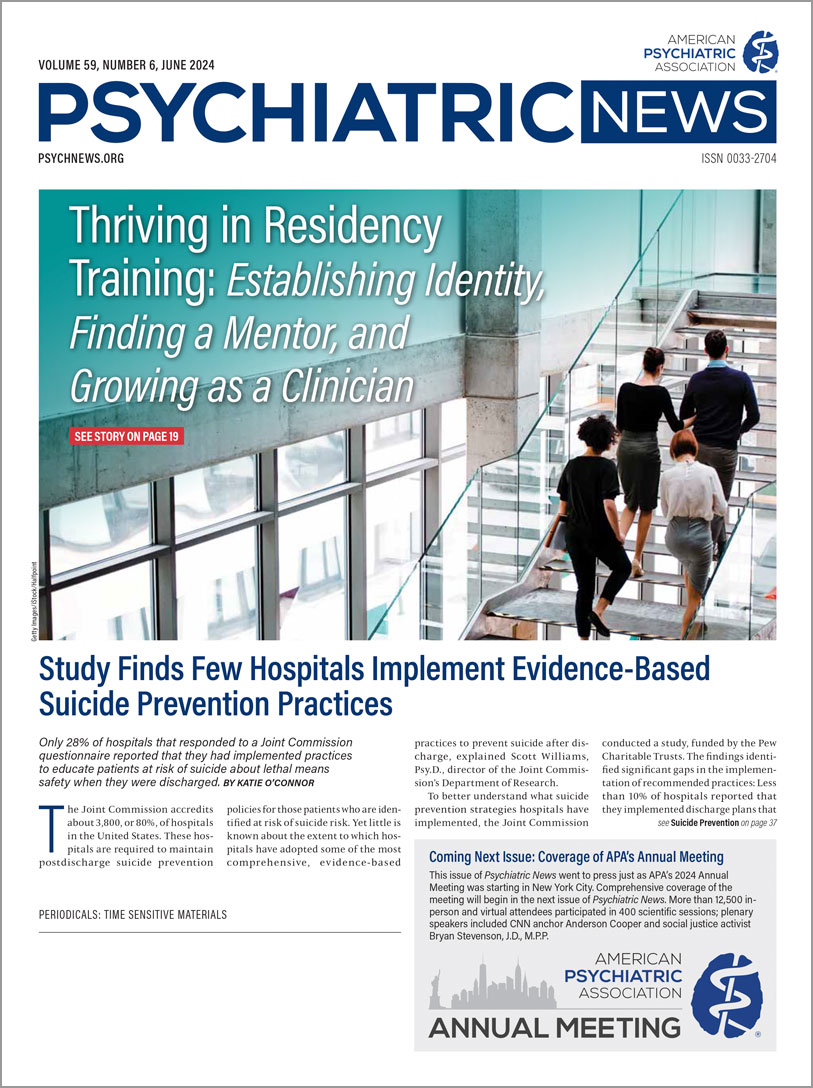Borderline personality disorder (BPD) is a serious mental illness that affects around 1.6% of the population. Approximately 70% people with BPD experience a suicide attempt and, sadly, 10% die by suicide. Although major strides have been made in diagnosing and treating this condition, it is still subject to unwarranted stigma, among not only providers but also the broader society, including those who live with BPD themselves.
Individuals with BPD are often wrongfully depicted as manipulative, wildly irrational, and invariably destructive. These stereotypes do not acknowledge either the inner suffering or the assets that people with BPD have. The stigma impedes a more hopeful, multidimensional, person-centered narrative.
Internalizing stigma can reinforce feelings of rejection or hopelessness, which can make individuals living with BPD less likely to seek professional help or social support in a crisis. With treatment and support, more than 90% of people recover from BPD and experience symptom remission to live a meaningful life. Yet, the vast majority of people with BPD have difficulties accessing treatment due to barriers such as an inadequate number of therapists practicing the evidence-based treatments, the cost of treatment, and lack of insurance coverage. This stigma contributes to continued suffering and the risk of suicide, as well as other social problems such as housing insecurity, incarceration, and unemployment.
Since 2018, the California Penal Code 1001.36 has allowed pretrial diversion for individuals diagnosed with certain mental health conditions, including schizophrenia, bipolar disorder, and posttraumatic stress disorder. Until now, people with BPD, along with people with antisocial personality disorder, were on the exclusion criteria to receive pretrial diversion services designed to reduce the likelihood of reoffending and to facilitate their safe community reintegration.
On October 10, 2023, Gov. Gavin Newsom of California took a significant step by signing
AB 1412 into law. This new legislation eliminates the exclusion of BPD from the pretrial prison diversion bill.
Assembly member Gregg Hart, who represents California’s 37th Assembly District, stated: “Upon being informed about this bill proposal by a CBHA member residing in my district, I promptly became troubled by the prejudice against individuals with borderline personality disorder. California’s legal framework must provide individuals with BPD the chance to engage in pretrial diversion and progress toward a productive, satisfying life. I take pride in being the author of this bill and the prospects it will provide to those living with BPD.”
The approval of AB 1412 highlights the considerable impact that grassroots advocacy can have on legislative initiatives to improve access and equity in BPD treatment. Additionally, it underscores the vital role that mental health professionals can play in shaping more inclusive and effective policies for highly stigmatized psychological disorders like BPD.
Passing AB 1412 is significant because it represents the first legislation passed to address stigmatizing mental health policy against people with BPD. Hundreds of people living with BPD, in conjunction with family members and clinicians, mobilized from around the country to ensure that people with BPD be treated the same as people with other mental health conditions in the California penal system.
Historically, advocacy efforts for various mental health conditions were often led by consumers and clinicians who relied on advancements in science and medicine to combat stigma. This advocacy is now expanding to support individuals with BPD. The rise of social media has empowered a growing number of young people to openly discuss BPD. They are ready to tell individuals with stigmatized views that now is the time to change. They are empowered to speak up about their condition and claim their right under the Mental Health Parity and Addiction Equity Act to access care. They want to live and recover, just like Americans with other psychiatric conditions.
The passage of California AB 1412 illustrates that the tide regarding stigma is turning. Other governmental bodies, health care professionals, people with lived experience, and insurance companies now need to follow suit and recognize BPD for what it is: a serious mental illness in need of research, education, and accessible treatment. Passing AB 1412 can be regarded as an encouraging start. ■
APA urges you to become involved with advocacy, and staff in APA’s Division of Government Relations will work with you and provide you with helpful tools. For more information, email APA’s Division of Government Relations at
[email protected]. Participate in APA’s advocacy by signing up for APA’s Advocacy Alerts
here or join the Congressional Advocacy Network
here.

